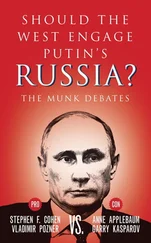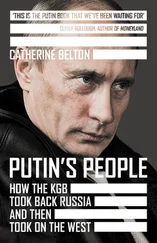It had to be something out of the ordinary. If it was the flu, his press secretary could just announce that fact and not becloud a situation already murky with the war in Ukraine, plunging oil prices, sanctions, and the murder of opposition leader Boris Nemtsov one week before Putin’s seclusion. But Russian leaders don’t like their health discussed in public. It can only reduce their larger-than-life image. One Russian woman told me that Stalin’s spell had broken for her when during his final illness in 1953 she began reading reports about his urine in Pravda . “Gods don’t pass urine,” she said with a crooked grin. [396] Richard Lourie, Russia Speaks , pp., 279–80. I tinkered with the translation, which was mine to begin with.
Contrary to some Western opinion, Putin cultivates his macho image not because he never outgrew an adolescent fascination with pecs, pistols, and espionage, but because in a Darwinian society strength is everything. In the entourage of every godfather, there’s always one man who thinks he can do a better job. Stalin, in his later years, was very aware of those in his retinue checking the spring in his step, his quickness of mind.
It is also possible that the reason behind Putin’s disappearance was not so primitive, but very much up-to-date. His media and image consultants may have advised him to change the Russian narrative from “Opposition leader murdered in front of Kremlin” to “Putin has disappeared.” In any case, his vanishing did precisely that. Domination through absence, domination through presence, but domination at all costs.
Since the void left by Putin drew rumors at a furious pace, this was also a way for Putin to gain certain valuable information about the country’s feelings for him. Of course, he knew that independent polling showed his popularity in the astronomical eighties, but he was also aware that this level was maintained because of the high price of oil, which created a boom. A decline in popularity in 2014–15 was offset by the elations of victory in Crimea and Ukraine. The problem with these polls is not that they’re rigged but that many respondents will, through an instinct bred in the bone, praise the leader rather than speak ill of him, especially if it costs you nothing.
Putin may also have been testing his immediate entourage to see how some might react to what could be a crisis in the continuity of leadership. Or the whole thing might have been as banal as a bad reaction to a Botox shot that puffed him so much he couldn’t show his face for a week.
Although Putin had disappeared from view a couple of times before, the March 2015 incident was the longest and therefore the most significant because it gave Russians a preview of Russia without Putin. In fact, “Russia without Putin” had already become the main slogan the opposition chanted in the streets along with “Putin is a thief.” Those street demonstrations grew particularly large and vociferous in late 2011 and reached their crescendo on May 6, 2012, the day before Putin’s inauguration for his third presidential term.
The mood at the anti-Putin march was both festive and sinister. People dressed as clowns seemed to be trying both to amuse and to provoke. Wearing storm trooper black, Fascists marched under their black, yellow, and white flag. The Communists held high their traditional red. But the majority of the people were part of the new middle class that had grown up and flourished under Putin. Young couples pushed strollers, followed by nerds sometimes called “office plankton” and “Internet hamsters,” old intellectuals with white goatees, stylish women in chic dresses and high heels. What united them was grievance at the way Putin and Medvedev simply swapped the positions of president and prime minister in 2008, an apparent homage to the Constitution that only made their “castling” the more insulting.
Once the demonstrators passed through the metal detectors splayed across the width of the street, they moved forward like a river whose banks were formed by three rows of police and SWAT teams (OMON) standing with their arms linked. Some of the young police, who had been placed in the front line to harden them, looked like they wanted to be anywhere but there. The OMON, on the other hand, were spoiling for violence. They wore segmented black body armor that gave them a sort of outer-space Samurai look. It was their demonstration too. A demonstration of their numbers, their power, their limited tolerance.
The violence was not long in coming. Given the length of the demonstration, those at the rear never knew what happened until they went home and turned on the television, which, being state-run, of course, minimized the number of demonstrators while exaggerating the number of police injured by stones and Molotov cocktails.
Putin was so unnerved by the scale and intensity of the demonstrations, he ordered that the streets leading to the Kremlin for his inauguration the next day be kept absolutely empty. So instead of waving in triumph to adoring crowds from his limousine, he drove through a ghost town. The look on his face was one of pale, cold fury.
The demonstrators had ruined his moment, and he would never forgive them. From that day on Putin has been implacable in crackdown.
Dmitri Oreshkin, an opposition analyst who heads Mercator, a Moscow-based research group, says of the people who call for a Russia without Putin: “What do they think is going to follow him? Some liberal politician? No, things would only get worse.” [397] Dmitri Oreshkin, “What Would Happen to Russia If Putin Died,” Week , February 3, 2015.
One way that things could get worse is for the Russian state to disintegrate, a possibility that has haunted Putin from the late 1980s as he watched the fall of the USSR. In the chaos of a post-Putin interregnum, Chechnya and the other Muslim-dominated areas could break away to form an emirate or even to swear allegiance to ISIS. Siberia could form its own political entity, vast, strong, and finally free from Moscow. Hungry for lebensraum and arable land, China could reassert control over territory long considered taken from them in “unequal treaties.” In short, this would be nothing less than the chaotic disintegration of a nuclear superpower. A more hazardous situation is difficult to imagine.
And so, to counter the formulation of “Russia without Putin,” Putin’s deputy chief of staff, Vyacheslav Volodin, has come up with an even more ominous version: “No Putin, no Russia.” [398] “‘No Putin, No Russia’ says Kremlin Deputy Chief of Staff,” Moscow Times , October 23, 2014.
* * *
The Russian Constitution provides that if the president resigns, is incapacitated, is impeached, or dies, his place will be taken by the prime minister. Elections have to be held within three months. There is no indication that Putin has groomed a successor. He would have considered that both premature and dangerous. It would mean both bringing someone too close to him while pushing others away and thereby turning them against him. Putin would of course have gathered or fabricated kompromat on all his potential successors. His main strength, however, has always been the loyalty he has demonstrated to others by keeping them in positions of power that bestow great wealth upon them. Still, among them all there is not one with whom Putin could strike the same power-for-immunity deal that Yeltsin struck with him. Putin needs his own Putin.
Whoever he is, Putin’s successor will have to possess a rare amalgam of qualities—he must be able to win the respect of the masses; to keep the oligarchs, the military, and the security forces in a dynamic balance; and to manage a complex foreign policy situation. He will also have to face the country’s two great unsolved problems—its dangerous dependency on gas and oil, and its failure to create a new sense of national purpose and identity.
Читать дальше
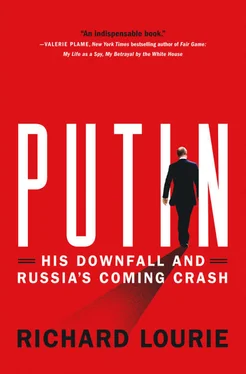

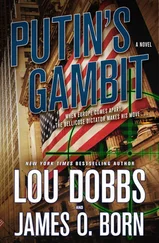
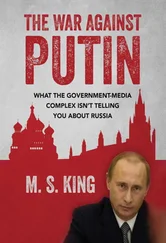
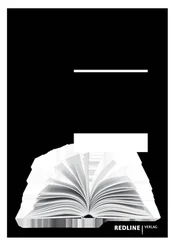
![Stephan Orth - Behind Putin's Curtain - Friendships and Misadventures Inside Russia [aka Couchsurfing in Russia]](/books/415210/stephan-orth-behind-putin-s-curtain-friendships-a-thumb.webp)

